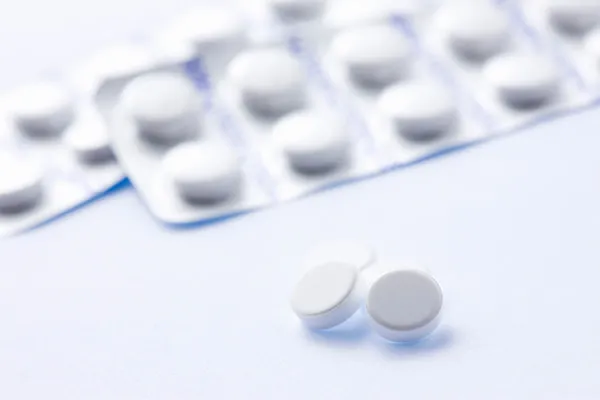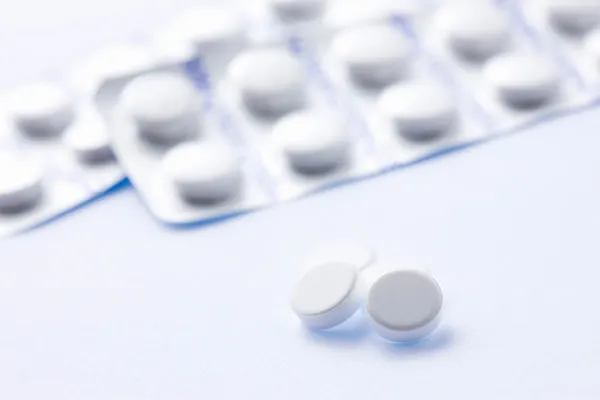Personalized Allergic Rhinitis Treatment to Ease Patient Concerns

The key to treating cedar pollinosis is taking medicines suited to your body and lifestyle before symptoms start to appear.
At Minato Shiba Clinic, we use a checklist to assess the patient's specific form of allergic rhinitis (also known as pollinosis, or more commonly hay fever or simply "allergies") so that we can provide personalized treatment.
We treat patients suffering from all types of hay fever, including year-round allergies, so feel free to come see us no matter your specific symptoms.
Hay Fever Treatment Based on Symptom Severity
We determine hay fever symptom severity based on frequency of sneezing and nose-blowing as well as degree of nasal congestion each day.
For patients with exceedingly severe symptoms, we use steroid injections (advance appointment required).
Vaccinations
Start of treatment: 2 weeks prior to forecasted start of pollen season
Medication used: Baynas
Symptom Severity Chart
| Symptoms | Medication | |
|---|---|---|
| Mild | Sneezing and nose-blowing frequency of less than 5 times per day, slight nasal congestion, no oral respiration | Allegra, Ebastel, Allelock |
| Moderate | Sneezing and nose-blowing frequency of 6–10 times per day, significant nasal congestion, occasional oral respiration | Zesulan, Zyrtec, Onon, Singulair, Allermist, nasal spray, Rhinocort nasal spray, Intal nasal spray |
| Serious | Sneezing and nose-blowing frequency of 11–20 times per day, severe nasal congestion, oral respiration frequent | Celestamine, Onon, Singulair, Allermistnasal spray, Rhinocort nasal spray, Intal nasal spray |
| Severe | Sneezing and nose-blowing frequency of 21 times or more per day, full nasal congestion throughout the day | Celestamine, Zaditen, Onon, Singulair, Allermist nasal spray, Rhinocort nasal spray, Intal nasal spray |
Hay Fever Medications (According to the Practical Guidelines for the Management of Allergic Rhinitis in Japan 2009 Edition)
- Second-generation antihistamines
- Zaditen®, Azeptin®, Celtect®, Zesulan®, Nipolazin®, Daren®, Remicut®, Alesion®, Ebastel®, Zyrtec®, Livostin®, Talion®, Allegra®, Allelock®, Claritin®
- Chemical mediator antireleasers
- Intal®, Rizaben®, Solfa®, Alegysal®, Pemilaston®
- Antileukotrienes
- Onon®, Singulair®, Kipres®
- Thromboxane A2 receptor antagonist
- Baynas®
- Th2 cytokine inhibitor
- IPD®
- Steroid nasal sprays
- Aldecin® Aqueous Nasal Spray, Rhinocort®, Flunase®, Nasonex®
For Patients with Hives, Atopic Dermatitis, Asthma, Hay Fever or Irritable Bowel Syndrome
Intestinal Barrier Function Strengthening Treatment

Allergic diseases, irritable bowel syndrome (IBS) and similar have become increasingly common in recent years.
In many cases, medical examinations fail to reveal a clear cause, resulting in a shortage of effective treatment methods.
Steroid drugs, antihistamines, autonomic nerve regulators and other such drugs are used in some cases to control symptoms, but these can have detrimental side effects if used for long periods of time.
Probiotics for Regulating Intestinal Balance
Allergic diseases, which include IBS, are caused by antigen–antibody interactions in response to allergens (which are antigens) entering the body,
and the intestinal tract is believed to be one such entry point for these allergens.
These allergens upset the balance of intestinal flora—in other words, the balance between “good” bacteria and “bad” bacteria. This means that, in the case of an irregularity in immune function, the allergens can easily pass through the protective mucous barrier and trigger allergic reactions.
Probiotics serve to normalize the balance of intestinal flora.
The microorganisms known as probiotics promote a better balance for intestinal flora, which provides health benefits to the user.
For example, probiotics are believed to reduce symptoms such as diarrhea and constipation by increasing amounts of good bacteria (lactobacillales and others) and reducing numbers of bad bacteria (E. coli, anaerobic bacteria, etc.). They also provide other beneficial effects such as improving the overall intestinal environment, preventing intestinal infections and restoring immune function.
The most widely recognized probiotics include lactobacillales (bifidobacteria, lactobacilli and streptococci) and butyric acid bacteria, among others.
It is believed that taking such probiotics together with the prebiotics described below can provide increased benefits.
Prebiotics are defined as types of food ingredients that (1) are not broken down or absorbed in the upper digestive (gastrointestinal) tract, (2) selectively serve as nutrient sources for specific “good” bacteria in the large intestine to promote proliferation of those bacteria, (3) help achieve and maintain a healthy intestinal flora compositional balance in the large intestine, and (4) facilitate maintenance and improvement of human health.
At present, prebiotics include oligosaccharides (galactooligosaccharides, fructooligosaccharides, soybean oligosaccharides, lactosucrose, xylooligosaccharides, isomaltooligosaccharides, raffinose, lactulose, coffee mannooligosaccharides, gluconic acid, etc.), as well as some dietary fibers.
Lactoferrins to Block Harmful Substances
Lactoferrins are a type of protein that binds with iron ions and transports them from the intestinal tract to other parts of the body to boost immune function.
Large numbers of these proteins are present in breast milk, where they serve to protect newborns and infants from harmful substances.
The intake of lactoferrins can prevent absorption by the body of harmful substances such as antigens and bacteria, and thus reduce allergic reactions.
Here at Minato Shiba Clinic, we make use of four types of probiotic and one type of lactoferrin, supplied by the American company Metagenics, Inc.
If you have questions regarding this topic, feel free to contact us.
Personalized Allergic Rhinitis Treatment to Ease Patient Concerns

The key to treating cedar pollinosis is taking medicines suited to your body and lifestyle before symptoms start to appear.
At Minato Shiba Clinic, we use a checklist to assess the patient's specific form of allergic rhinitis (also known as pollinosis, or more commonly hay fever or simply "allergies") so that we can provide personalized treatment.
We treat patients suffering from all types of hay fever, including year-round allergies, so feel free to come see us no matter your specific symptoms.
Hay Fever Treatment Based on Symptom Severity
We determine hay fever symptom severity based on frequency of sneezing and nose-blowing as well as degree of nasal congestion each day.
For patients with exceedingly severe symptoms, we use steroid injections (advance appointment required).
Vaccinations
Start of treatment: 2 weeks prior to forecasted start of pollen season
Medication used: Baynas
Symptom Severity Chart
| Symptoms | Medication | |
|---|---|---|
| Mild | Sneezing and nose-blowing frequency of less than 5 times per day, slight nasal congestion, no oral respiration | Allegra, Ebastel, Allelock |
| Moderate | Sneezing and nose-blowing frequency of 6–10 times per day, significant nasal congestion, occasional oral respiration | Zesulan, Zyrtec, Onon, Singulair, Allermist, nasal spray, Rhinocort nasal spray, Intal nasal spray |
| Serious | Sneezing and nose-blowing frequency of 11–20 times per day, severe nasal congestion, oral respiration frequent | Celestamine, Onon, Singulair, Allermistnasal spray, Rhinocort nasal spray, Intal nasal spray |
| Severe | Sneezing and nose-blowing frequency of 21 times or more per day, full nasal congestion throughout the day | Celestamine, Zaditen, Onon, Singulair, Allermist nasal spray, Rhinocort nasal spray, Intal nasal spray |
Hay Fever Medications (According to the Practical Guidelines for the Management of Allergic Rhinitis in Japan 2009 Edition)
- Second-generation antihistamines
- Zaditen®, Azeptin®, Celtect®, Zesulan®, Nipolazin®, Daren®, Remicut®, Alesion®, Ebastel®, Zyrtec®, Livostin®, Talion®, Allegra®, Allelock®, Claritin®
- Chemical mediator antireleasers
- Intal®, Rizaben®, Solfa®, Alegysal®, Pemilaston®
- Antileukotrienes
- Onon®, Singulair®, Kipres®
- Thromboxane A2 receptor antagonist
- Baynas®
- Th2 cytokine inhibitor
- IPD®
- Steroid nasal sprays
- Aldecin® Aqueous Nasal Spray, Rhinocort®, Flunase®, Nasonex®
For Patients with Hives, Atopic Dermatitis, Asthma, Hay Fever or Irritable Bowel Syndrome
Intestinal Barrier Function Strengthening Treatment

Allergic diseases, irritable bowel syndrome (IBS) and similar have become increasingly common in recent years.
In many cases, medical examinations fail to reveal a clear cause, resulting in a shortage of effective treatment methods.
Steroid drugs, antihistamines, autonomic nerve regulators and other such drugs are used in some cases to control symptoms, but these can have detrimental side effects if used for long periods of time.
Probiotics for Regulating Intestinal Balance
Allergic diseases, which include IBS, are caused by antigen–antibody interactions in response to allergens (which are antigens) entering the body,
and the intestinal tract is believed to be one such entry point for these allergens.
These allergens upset the balance of intestinal flora—in other words, the balance between "good" bacteria and "bad" bacteria. This means that, in the case of an irregularity in immune function, the allergens can easily pass through the protective mucous barrier and trigger allergic reactions.
Probiotics serve to normalize the balance of intestinal flora.
The microorganisms known as probiotics promote a better balance for intestinal flora, which provides health benefits to the user.
For example, probiotics are believed to reduce symptoms such as diarrhea and constipation by increasing amounts of good bacteria (lactobacillales and others) and reducing numbers of bad bacteria (E. coli, anaerobic bacteria, etc.). They also provide other beneficial effects such as improving the overall intestinal environment, preventing intestinal infections and restoring immune function.
The most widely recognized probiotics include lactobacillales (bifidobacteria, lactobacilli and streptococci) and butyric acid bacteria, among others.
It is believed that taking such probiotics together with the prebiotics described below can provide increased benefits.
Prebiotics are defined as types of food ingredients that (1) are not broken down or absorbed in the upper digestive (gastrointestinal) tract, (2) selectively serve as nutrient sources for specific "good" bacteria in the large intestine to promote proliferation of those bacteria, (3) help achieve and maintain a healthy intestinal flora compositional balance in the large intestine, and (4) facilitate maintenance and improvement of human health.
At present, prebiotics include oligosaccharides (galactooligosaccharides, fructooligosaccharides, soybean oligosaccharides, lactosucrose, xylooligosaccharides, isomaltooligosaccharides, raffinose, lactulose, coffee mannooligosaccharides, gluconic acid, etc.), as well as some dietary fibers.
Lactoferrins to Block Harmful Substances
Lactoferrins are a type of protein that binds with iron ions and transports them from the intestinal tract to other parts of the body to boost immune function.
Large numbers of these proteins are present in breast milk, where they serve to protect newborns and infants from harmful substances.
The intake of lactoferrins can prevent absorption by the body of harmful substances such as antigens and bacteria, and thus reduce allergic reactions.
Here at Minato Shiba Clinic, we make use of four types of probiotic and one type of lactoferrin, supplied by the American company Metagenics, Inc.
If you have questions regarding this topic, feel free to contact us.
Clinic Hours and Location
| Mon. | Tue. | Wed. | Thu. | Fri. | Sat. | Sun. / Nat'l Holidays | |
|---|---|---|---|---|---|---|---|
| 9:00 a.m. – 12:45 p.m. | ○ | ○ | × | ○ | ○ | ○ | × |
| 3:00 p.m. – 6:45 p.m. | ○ | ○ | × | ○ | ○ | × | × |
Kuwayama Bldg. 2nd floor, 2-12-1 Shiba, Minato-ku, Tokyo Googlemaps
4 min. on foot from Shibakoen Sta., 7 min. on foot from Mita Sta., 7 min. on foot from Daimon Sta. and 10 min. on foot from Hamamatsucho Sta.













